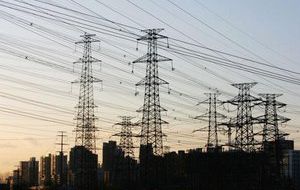MercoPress. South Atlantic News Agency
F Times: Argentine energy model “unsustainable”

The energy model championed by Argentine President Cristina Fernández and her husband, former President Néstor Kirchner, keeping domestic energy prices and utilities tariffs artificially low to boost an economy recovering from a debt and devaluation crisis in 2001-2002, looks increasingly unsustainable.
According to the Financial Times the policy has succeeded in delivering growth rates of more than 8%, but it has been a serious disincentive to investment in new reserves and has led to declining production. In the power sector, that has translated into insufficient extra capacity to keep up with runaway demand fuelled by electricity rates that are about a quarter of international levels. Industrial clients have come under pressure to use less energy in order to avoid politically damaging power cuts for residents when temperatures peak. In the fuel sector, it has meant shortages, despite refineries working at capacity, higher export tariffs designed to guarantee domestic supplies, and even a temporary ban on fuel exports. Analysts say some 3 to 5 billion US dollars a year investment in oil, gas and electricity is needed to keep the economy growing at 5 to 6%. But national oil production hit its lowest level in 2005 since 1998, and gas production, which has been rising steadily, sloped off in 2005 compared with 2004, according to the latest official data. Further on Financial Times points out that President Cristina Fernandez de Kirchner's first month and a half in office has been marred by the specter of regular power cuts or rationing that a timid energy saving plan she announced last month has failed to banish. And there is no indication yet when tariff rises expected to start this month will actually materialize, especially against a backdrop of mounting inflation. Cammesa, Argentina's electricity wholesale market regulator, apparently spent four billion US dollars in the last four years subsidising electricity tariffs, buying fuel oil and diesel, and importing electricity from Uruguay and Brazil. All of which could have been enough to built six 800MW power stations and to have had a net energy surplus this year. Argentina is moving ahead on plans to build a pipeline costing 1.9 billion US dollars to import 27.7m cubic meters of gas a day from Bolivia by 2010, but Bolivia needs more investment yet in its own energy sector to meet the ambitious goal. The recent announcement of the biggest hydrocarbons discovery in Argentina, and promises of huge investments to develop the 100 million barrels of oil equivalent deposit, plus speculation about discoveries of gas in the north next to Bolivia and in Tierra del Fuego, have helped to boost the government's standing, but it takes years to bring new discoveries into production.




Top Comments
Disclaimer & comment rulesCommenting for this story is now closed.
If you have a Facebook account, become a fan and comment on our Facebook Page!